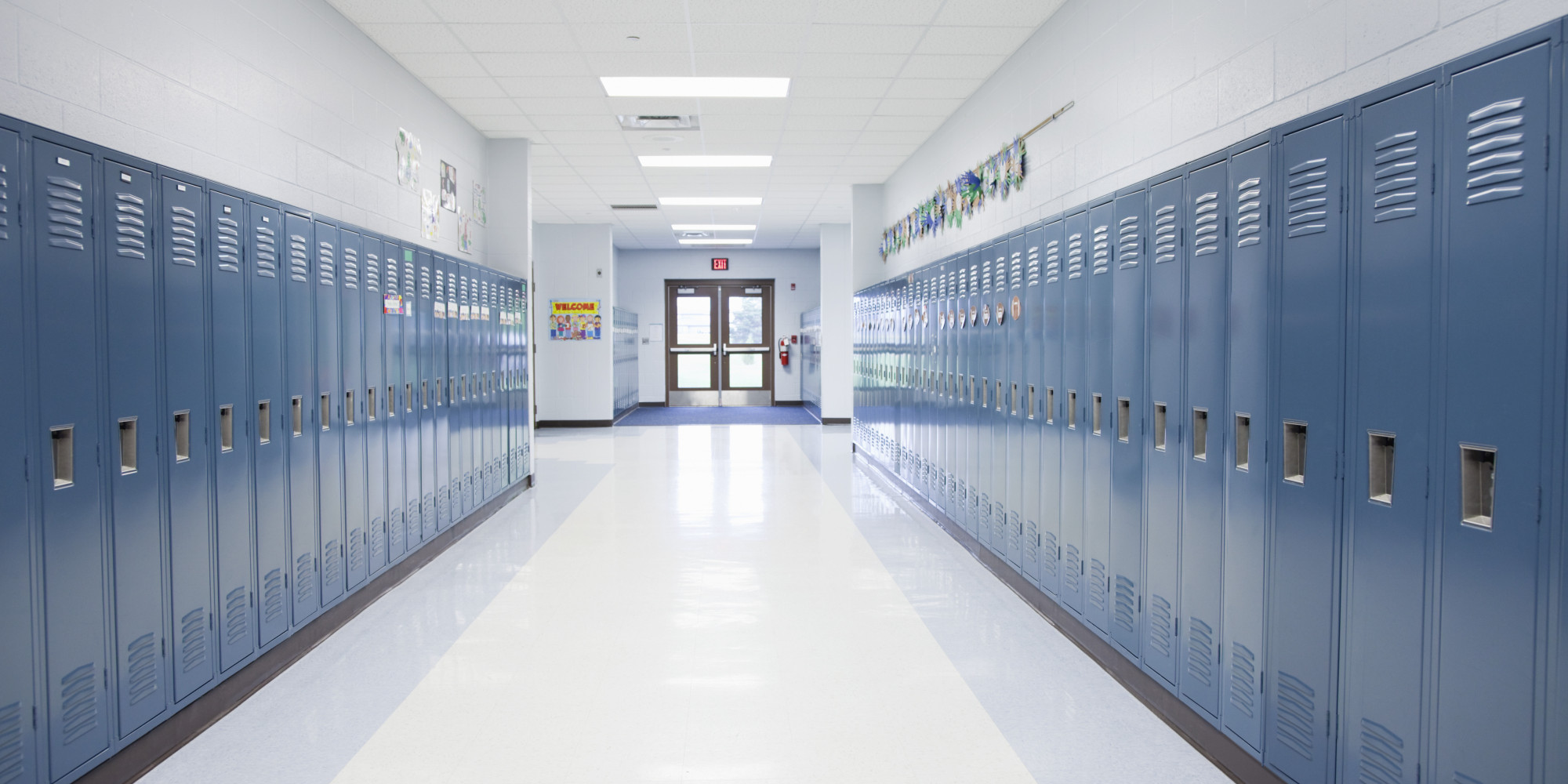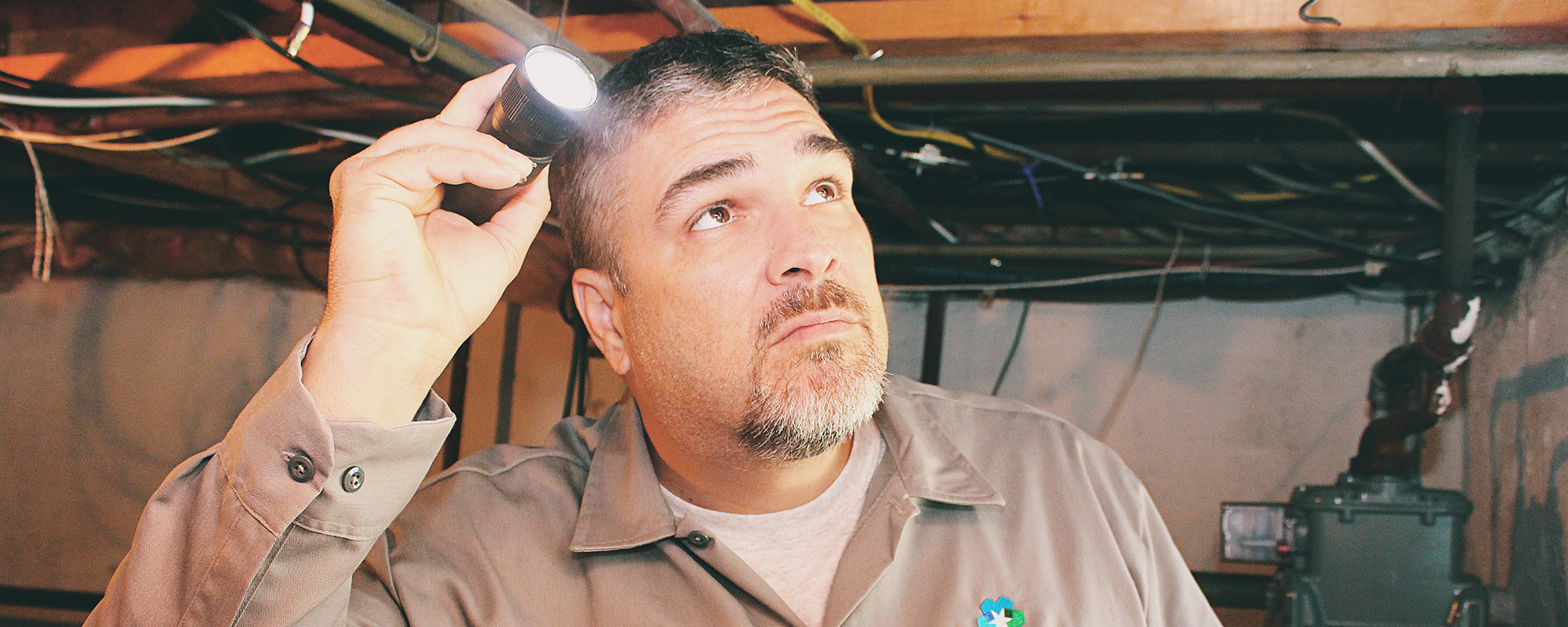
In a damp environment, it only takes mold 24-48 hours for mold to begin to develop and spread. Schools tend to be very vulnerable to water damage caused by roof issues, plumbing problems, leaks, floods, and poor ventilation. According to a survey of U.S schools, conducted by the General Accounting Office, 30% of schools had plumbing problems and 27% had roof problems. With all this water intrusion, mold becomes a real threat.
Moisture problems should be addressed right away and dried out as soon as possible. The moisture source needs to be fixed promptly to avoid further water intrusion. Unfortunately, water problems can easily be missed, overlooked or simply ignored. Unaddressed water will lead to serious water damage that jeopardizes the building’s structural support. With time, mold will develop, which can lead to various health problems in students and teachers who have been exposed.
Mold is considered a bio-contaminate that can be hazardous to students and teachers. The mold remediation professionals are fully trained and properly equipped to remove mold growth from South Jersey schools. If you suspect mold development in your school, let the professionals help.
What Causes Mold in Schools
High demands, but limited budgets to meet demands– Cutbacks on funding to schools can force a school to have to make some tough spending decisions. Mold in schools is often caused by a combination of factors. With limited budgets, schools must prioritize necessities over building upkeep and maintenance.
- When it comes to water problems, schools may be forced to go with a “quick fix” rather than a long-term solutions due to monetary restrictions.
- Ex: A school has a deteriorating roof that is bringing water into the building. The school school cannot afford to have the roof replaced, so they simply have it patched up.
School breaks and holidays– During school breaks, schools can go unused for months at a time, with the exception of some scheduled maintenance activities.
- Little to no air conditioning or heating– When school is not in session, schools tend to reduce the use of air conditioning or heating in attempts to cut down on unnecessary energy use (sometimes as a reaction to budget cuts).
- Without constant cool air circulating through the halls and rooms, air can grow stagnant. Warm stagnant air encourages moisture buildup that will lead to mold development.
- Humid summer months– Humidity levels during the summer months tend to be higher and can put indoor environments at risk of moisture concerns if a space is not properly ventilated.
- Minimal activity while school is out of session means the school is closed up most of the time, which will reduce natural air flow through open doors and windows.
- If the air conditioning has been reduced or cut off completely, that will further restrict air flow throughout the building.
- Limited air circulation allows indoor moisture buildup, which can lead to mold in schools.
- Summer/winter break maintenance schedules– With minimal activity in schools during breaks, school must rely primarily on maintenance crews to spot water intrusion. If maintenance checks are not scheduled frequently enough, a water problem can go unnoticed for a while and allow for mold in schools.
- Schools also tend to schedule maintenance projects during months without student traffic. Some of these maintenance tasks can increase moisture– Ex: painting, carpet cleaning, etc.

Preventing Mold in Schools
General moisture control is the key to preventing mold in schools.
- Conduct frequent general maintenance checks and perform regular school building inspections specifically for signs of mold in schools, moisture issues, and leaks.
- Report moisture problems immediately to the maintenance staff.
- Water intrusion should be addressed as soon as possible to prevent major water damage and mold development.
- Damp or wet building materials and furnishings need to be dried and cleaned within 24-48 hours to avoid mold in schools.
- Maintain humidity control. The ideal indoor humidity level is anywhere between 30%-50%.
- Spaces that are especially damp (bathrooms, locker rooms, etc) require sufficient ventilation that directs warm, moist air outside and away from the building.
- Install and run exhaust systems to help circulate air and encourage air flow.
- Place air conditioners and dehumidifiers to encourage air circulation and ventilation.
- Avoid installing carpet in areas with perpetual moisture problems:
- Near drinking fountains and sinks
- On concrete floors in contact with the ground and subject to frequent condensation
- Make it a requirement to run moisture removing equipment during moisture generating activities (ie: carpet cleaning, painting, etc.). Also consider cycling the air conditioning system several hours every day or running dehumidifiers.
- Participate in the U.S EPA’s IAQ Tools for Schools Program. It provides schools in the U.S with guidance on the necessary tools and precautions to promote a healthy indoor air quality.

If a school is showing signs of mold development, you should contact a certified school mold inspector in South Jersey to conduct a mold inspection to get to the bottom of the mold problem. A professional mold inspector will be able to determine if it is mold or not, how bad it is, what caused it, and how to safely remove it. If a school is suffering from a major mold contamination, a professional mold remediation in New Jersey will ensure that the mold has been safely removed and it will not come back.
MasterTech Environmental is fully trained and certified in New Jersey to perform commercial and residential mold inspections and mold remediations throughout New Jersey. If you suspect mold development in your school, call 609-948-8844.


